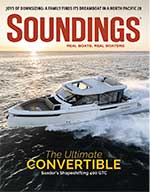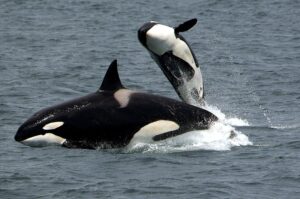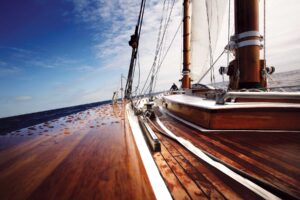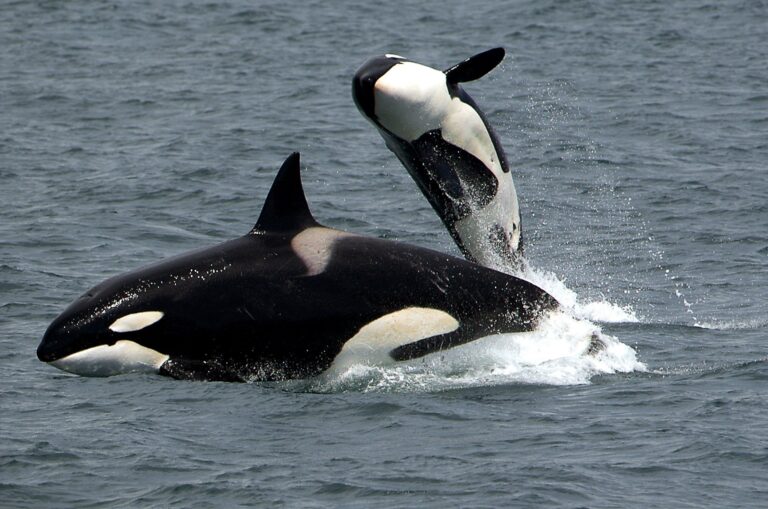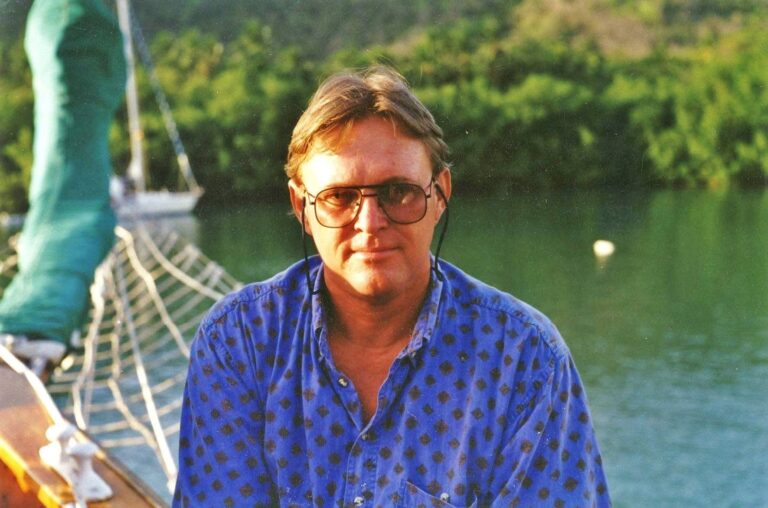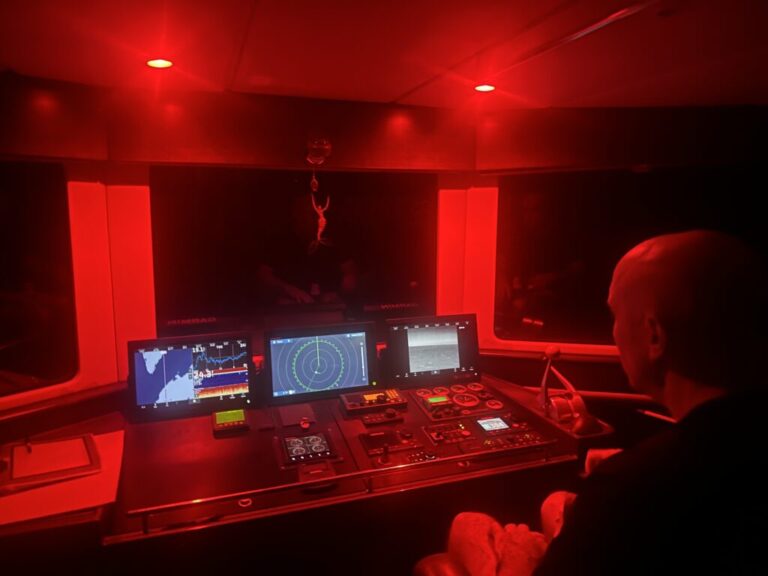When he couldn’t pay a $45,000 fine for not having a license, the cruiser was sentenced to a year in jail
When he couldn’t pay a $45,000 fine for not having a license, the cruiser was sentenced to a year in jail
An American sentenced to a year in a British Virgin Islands prison for fishing without a license is back home, his sentence commuted after a widely publicized campaign to free him.
“I’m glad to be home,” says Richard Baker, 54, of St. Thomas, U.S.Virgin Islands. “For someone who has dedicated his life to the criminal justice system, it was quite a rude shock to wind up in prison.”
Thirteen years an Arlington, Va., police officer, 11 years an attorney, Baker — now a dive instructor — spent six weeks in the Balsam Gut Prison in Tortola. His crime: fishing without a license in Atlantic waters, five miles off Tortola. BVI Magistrate Valerie Stephens fined Baker $45,000 for the infraction and sent him to jail for a year when he couldn’t pay the fine. He had just $600 in his bank account.
On Nov. 6 BVI Governor David Pearey commuted the sentence to time served after a clemency review by the BVI Prerogative of Mercy Committee. USVI Governor John deJongh and the U.S. Consul General in Barbados interceded for Baker, and a media blitz railed against the big fine, usually reserved for commercial violators.
“Richard’s is the first completely recreational boat that has been caught,” says Paige Passano, manager of Budget Marine, a St. Thomas chandlery where Baker’s partner, Deborah Barton, works. “He had no fish on board. He had no live bait. I’ve known [the couple] for two years, and in all that time I’ve known them to catch one fish — a small barracuda. They are not fishermen. The fine was absolutely ludicrous.”
“We had no idea,” says Barton, 58, who was arrested with Baker Sept. 24 and spent one night in jail. “We thought this was just a fishing violation, and like anyplace else in the world they’d fine us a couple of hundred dollars, and we’d pay the fine and go home.”
Not in the BVI, where fishing without a license can draw up to a $500,000 fine. Had they known that, Baker wouldn’t have pleaded guilty, Barton says.
The couple, who live aboard in St. Thomas, thought they’d spend their day off cruising and fishing from their 36-foot Litton trawler, Mambo. Casual anglers at best, they figured they might find some fish if they followed the sportfishing fleet out toward the North Drop on Tortola’s Atlantic side, 17 miles off Jost Van Dyke. Mambo carries two spinning rods, and no downriggers or fighting chair. “We open the tackle box and say, ‘This looks like a pretty one. Let’s use that one.’ That’s our level of fishing,” Baker says.
Mambo was making a modest 4 knots out to the North Drop with its single engine. “We dropped two lures in the water to see if we could catch something for dinner,” Barton says. “We were just enjoying a day on the ocean. We thought we were OK. We knew we were in BVI waters but thought if we went out three miles we didn’t need a license.”
Unknown to many who fish only casually, BVI claims a 200-mile exclusive fishing zone, except where boundaries are set between neighboring countries. It requires all boats that fish in that zone to be licensed, according to a spokesman for the BVI Department of Environment and Fisheries and the BVI government Web site (www.hostbvi.net).
Barton says they hadn’t caught anything but were enjoying the peace when a speedboat approached and one of three men on board motioned for them to stop. None of the men was in uniform. “We tried to hail them on channel 16,” Barton says. “But we got no response. We thought they were pirates.” As it turned out, the speedboat’s radio wasn’t working.
They pulled alongside and yelled out, “Do you have fishing licenses?” Seeing a badge on one of the men’s belts, the couple stopped and acknowledged that they didn’t have permits. Police processed them into a jail in Road Town about 7:30 p.m. They spent the night there and appeared in court at 9 a.m. By 9:30 they had pleaded guilty, Barton to using BVI waters without clearing Customs and Baker to failing to clear Customs and fishing without a license. They both were fined $1,000 for the Customs violations. Barton paid the fine and was released. Baker, the boat’s owner, was fined $45,000 more for the fishing violation. “By 10 [o ’clock], Richard was on his way to prison,” Barton says.
“[The conservation officers] had a law to enforce, and they did their job. I respect that,” Baker says, but he says the judge was unreasonable.
The couple pleaded guilty, and when Baker told the court he didn’t realize he was violating BVI law and said a sportfishing license isn’t required at home in the USVI, the judge became visibly irritated, told him ignorance of the law is no excuse, and socked him with the fine, he says. When he said he didn’t have the money to pay it, she sent him to jail for a year.
“This is way off the charts,” says Art Halpern, a St. Thomas businessman and USVI resident for 30 years. “A guy has a couple feathers in the water, and they lock him up for a year?”
Halpern, owner of Caribbean Battery, a company with a lot of boating clients, says there has been a lot of grumbling in the USVI about their neighbor’s “crackdown” on visitors from the U.S. side of the Virgins. “It’s just very strange,” he says. “The whole thing boils down to the punishment fitting the crime. This is just mean and cruel.”
Part of the problem is the failure of BVI fisheries law to satisfactorily distinguish between recreational and commercial fishermen, says Passano, the Budget Marine manager. “The BVI has had an issue with people from the USVI fishing in the BVI for a number of years,” she says. She says the BVI is conservation-minded; it wants to protect its fisheries. But the fisheries law — and the big fines — usually are used to punish commercial violators.
Baker says there’s another problem: Many in the BVI resent that most sportfishing captains tie up in St. Thomas and spend their money there but do most of their fishing (95 percent, according to a 2005 study) at the North Drop in BVI waters. “I can understand where there is a concern, and it’s valid,” he says. Still, “The fine was outrageous.”
Passano says deJongh has secured a commitment from the BVI to rewrite its fisheries law so there are different fines for non-commercial anglers. “The big fines really were for bigger commercial boats,” she says. “They’ve promised to change that.”
Another issue she hopes will be clarified is when a boat must clear Customs before fishing BVI waters. She says it is clear a boat must go into port and clear Customs before fishing inside the 12-mile limit; it is not as clear that it must do the same to fish in the 200-mile zone. She says clarification of the law is important to both the U.S. and the British Virgins to encourage sport anglers to come and fish. “It’s off-season business,” she says. “We [and they] can’t turn it away.”
Baker left the police force after a disabling collision between his police motorcycle and a car. He went on to graduate law school and became an attorney, then discovered diving. It was both enjoyable and therapeutic for his back injury, so he became a dive instructor, first in Mexico, where he met Barton, then in St. Thomas, where he’s been for two years.
“We’re holding a job for him,” says Capt. Arnoldo Falcoff, Baker’s employer. Baker says he’s ready to go back to work.
As a condition of his release, he had to write a letter of apology to the BVI governor for the licensing infraction — Baker said he is genuinely sorry he broke the law — but he also had to write an apology to the judge, who thought he had been disrespectful. Barton says he was, in fact, very respectful, but he bit his tongue and wrote the letter anyway.
“I guarantee I’m not going fishing [in the BVI] again,” he says. “If [Deborah] has her way, we won’t go fishing at all again.”

